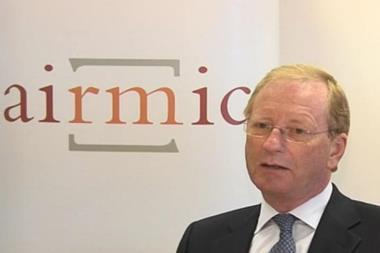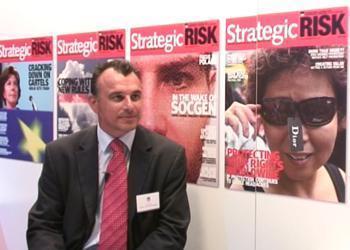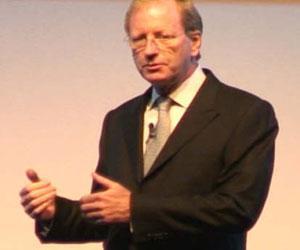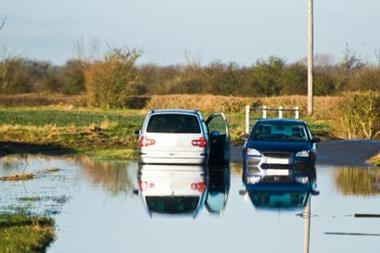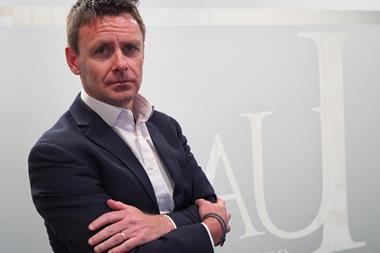AIRMIC's chief executive talks about his plans for the association and how members can take advantage of the heightened emphasis on risk management
In January this year AIRMIC announced that it had found its new chief executive and the waiting was over. ‘I didn’t hesitate for a nanosecond when the envelope arrived offering me the job,’ says John Hurrell, the man who stepped into the role.
Judging by his breadth of experience, it’s not hard to see why AIRMIC’s board decided to put their faith in Hurrell, formerly chief executive officer at Marsh Risk Consulting Europe, Middle East and Africa.
Having lived and worked through three major events which hit the broker—the terrorist attacks of September 11, the Spitzer inquiry into broker remuneration and a campaign against company employees by animal rights activists—he knows about risk. In the three decades he was with Sedgwick and Marsh, Hurrell also bagged tons of experience dealing with AIRMIC member type clients.
Joining AIRMIC he has some exciting initiatives planned. First, he thinks the association’s lobbying role will only get bigger as intervention from regulators in both the UK and Europe increases. ‘Lobbying is an area in which our members are looking for us to represent them where even the largest organisations would find it difficult.’ He also believes there is work to be done in rekindling a relationship between AIRMIC and the UK government.
A shift of emphasis is obvious in another of AIRMIC’s key areas, networking. The association recently announced it was working with Advisen to produce an insurance buyers benchmarking survey. ‘We’re also looking to strengthen special interest groups in AIRMIC, so members will find it easier to access other members and to get information about what represents best practice in their industry.’
The new chief executive is committed to continuing AIRMIC’s traditional work in insurance and risk management expertise. ‘The theme at the moment is claims and that will come to fruition in the course of this year and the next,’ he says. There is also a desire to follow in the footsteps of RIMS by developing a support role for AIRMIC members’ personal career development.
Risk makes the economy work
Hurrell says good risk management allows organisations to pursue their goals with more confidence. ‘I think the critical thing is not only should a risk management programme reduce risk and improve confidence levels, but it should also enable an organisation to be more efficient and run more effectively,’ he says.
Quantifying that return on investment for risk management is another thing AIRMIC has been working on. The association is due to unveil research into this area at the annual conference this month.
An emerging issue is the impact an organisation has on the community. ‘Risk management has an import part to play in helping organisations demonstrate to the wider world how they can act responsibly,’ says Hurrell.
Never have these initiatives been more pressing than in the current period of economic uncertainty. Hurrell believes it is AIRMIC’s responsibility to equip risk managers for the challenges ahead. ‘Now is the time for risk managers to step up,’ he says.
With boards adopting formal risk management strategies, he believes, there is a terrific opportunity for risk managers to step up into senior roles within their organisations. The corresponding threat is that if they don’t someone else will.
A worrying trend that emphasises the dangers is the increasing involvement of procurement officers in insurance buying. AIRMIC has started working closely with CIPS (Chartered Institute of Procurement and Supply) to help its members understand how procurement works and to improve the overall working relationship.
Ultimately he believes there is room for competitive opportunities during periods of uncertainty: ‘Certainly we are seeing our member’s organisations making investments in new areas and developing new products and services.’
Asked whether AIRMIC could be working more closely with the European associations to tackle these kinds of issues, Hurrell agrees that it could. ‘What is clear to me is that the issues we are all facing are very similar and we could probably do a lot more to help each other resolve those issues.’
A threat to competition
Does consolidation in the broker market serve buyers needs or does it reduce competition? The question remains as contentious as ever with fresh rumours of a Willis bid for Marsh. Hurrell says: ‘Consolidation up to a point adds value for our membership because it probably enhances the financial strength of the organisation and creates critical mass in terms of ability to access knowledge. Beyond that point there is a threat to competition. If that consolidation impacted on any of the top three brokers in the marketplace then our members would feel that was a competitive threat and one which AIRMIC would express its views to any competition authority.’






